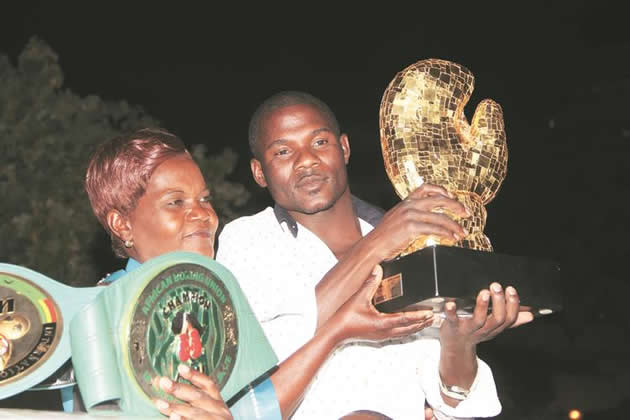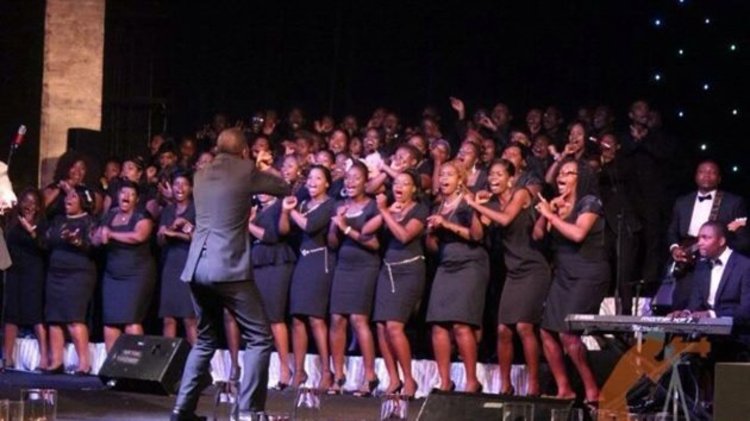Rugare opts for sungura beat

Lovemore Chikova Christian Entertainment
I have in the past posed a question on what Christians should do with sungura gospel music. Should they embrace it wholly or take it with a pinch of salt because the genre is often associated with worldly music?
Well, my take has always been that sungura music can effectively be used to propagate gospel music.
After all, the genre remains popular despite competition from newly establish ones like Zim dancehall and Afro Hip Hop.
Most praise songs in Zimbabwean churches are done in sungura and these songs are danceable and I have often seen many people dancing their hearts out whenever such songs are played.
I am touching on this subject because there is something major happening in Zimbabwean gospel music as more musicians are turning to the sungura genre.
And one such singer is Rugare Mushosho Tapambwa, who has come up with an album titled “Simba reMuchinjikwa”, which is a mixture of sungura and other genres.
I do not often review albums on this column, but Rugare’s project left me with no option.
When I got a copy of the album, the first question I asked myself was: “What really can come out of a woman using sungura, on a gospel album for that matter?
Well, it’s a fact that sungura music has been a preserve of males and a few women who have dared venture into it have been received with mixed feelings and many did not last long.
This is why I was sceptical when I realised that the first song on Rugare’s album was pure sungura.
Let me quickly say that the impression I got after listening to the whole album completely changed my thinking about gospel music and the sungura beat.
Rugare demonstrated without any qualms that one can employ the sungura beat on a gospel music album and still effectively communicate the message.
She shows that focusing on the message and blending it well with guitars is the perfect way of fusing the sungura beat with gospel lines.
On the album, which was engineered, mixed and mastered by Rugare’s husband, Norman Tapambwa, there is a demonstration that well-arranged sungura guitars can attract the audience to the message.
Most of the instruments on the album were played by Norman, a veteran sungura music guitarist who is employing his guitar playing skills to aid in spreading the gospel.
For the benefit of those who might not be well versed with the musical history of this young family, Norman has a number of albums to his credit, all in either sungura or dendera genre.
He has in the past played with many musicians in Zimbabwe, both gospel and secular.
It is his influence in sungura music that has seen his wife produce the scorcher of an album with some of the best sungura gospel songs.
To show her intention, Rugare opens the album with the song titled “Simba Ratakapiwa”, a song heavily laden with the sungura beat.
It is the thumping bassline, played by Norman of course, which defines this song, while the rhythm and the lead guitars bring out the true sungura feeling on the song.
Keyboards on this song and the other songs on the album are played by veteran keyboardist Jonathan Mugazi, who has done a number of albums in the past before he drifted more into producing music.
On the song “Simba Ratakapiwa”, Jonathan’s keyboards are also outstanding as they perfectly complement the sungura beat.
It is the message on this song which makes those who thought sungura music cannot be perfectly used to propel gospel music think twice.
The message on the song is very clear: the power of God was given to mankind for free, to heal, to deliver.
Rugare urges people to receive this power which makes the devil powerless when his shenanigans are exposed by the power of God.
It is this song which is set to grab the attention of many.
In fact, on the entire album, Rugare ably demonstrates that not only the message is paramount, but that the melodies are also equally important.
On the title song “Shoko reMuchinjikwa”, Rugare demonstrates her versatility as she employs the dendera music beat to put across the message.
This clearly shows that her album and the compositions add a new impetus to the Zimbabwean contemporary Christian music.
On the song, Rugare ably brings forth the message that there is something to gain by believing in the power of the cross.
Perhaps in an attempt not to depart too much from the norm, Rugare slows the beat on the songs “Mwana Wako”, “Mwari Wakanaka”, “Inyasha” and “Nyarara”.
On these songs, she deliberately lets Mugazi’s keyboards do the “talking”, while the guitars provide a laid back supporting act to the melody.
Then she picks it up on “Pembera” where she returns to the sungura beat.
Whoever thought that the booming solo bass guitar which has of late become the hallmark of sungura music cannot be effectively employed in gospel music must listen to this album for a second thought.
The song brings to the fore the versatility of Rugare’s husband as he changes the course of the album with the thumping sungura bass guitar.
“Pembera” is a feel joy song urging people to rejoice and dance to the Lord in celebration, and what a way to do it with the heavy sungura beat which makes the song danceable.
What I liked about Rugare’s album is that it breaks barriers in gospel music and leaves no doubt that musicians in this genre should exploit all their gifts to the glory of God.
If one is a gospel musician and is gifted in sungura music, why not fully exploit that gift to the glory of God?
In this case, I salute Rugare because she managed to tread where other females (and some males for that matter), have chickened out.
For that, I do not hesitate to recommend the album to gospel music lovers.
It was recorded, mixed and mastered at Live Sound Studios International and is being marketed under the same label.








Comments